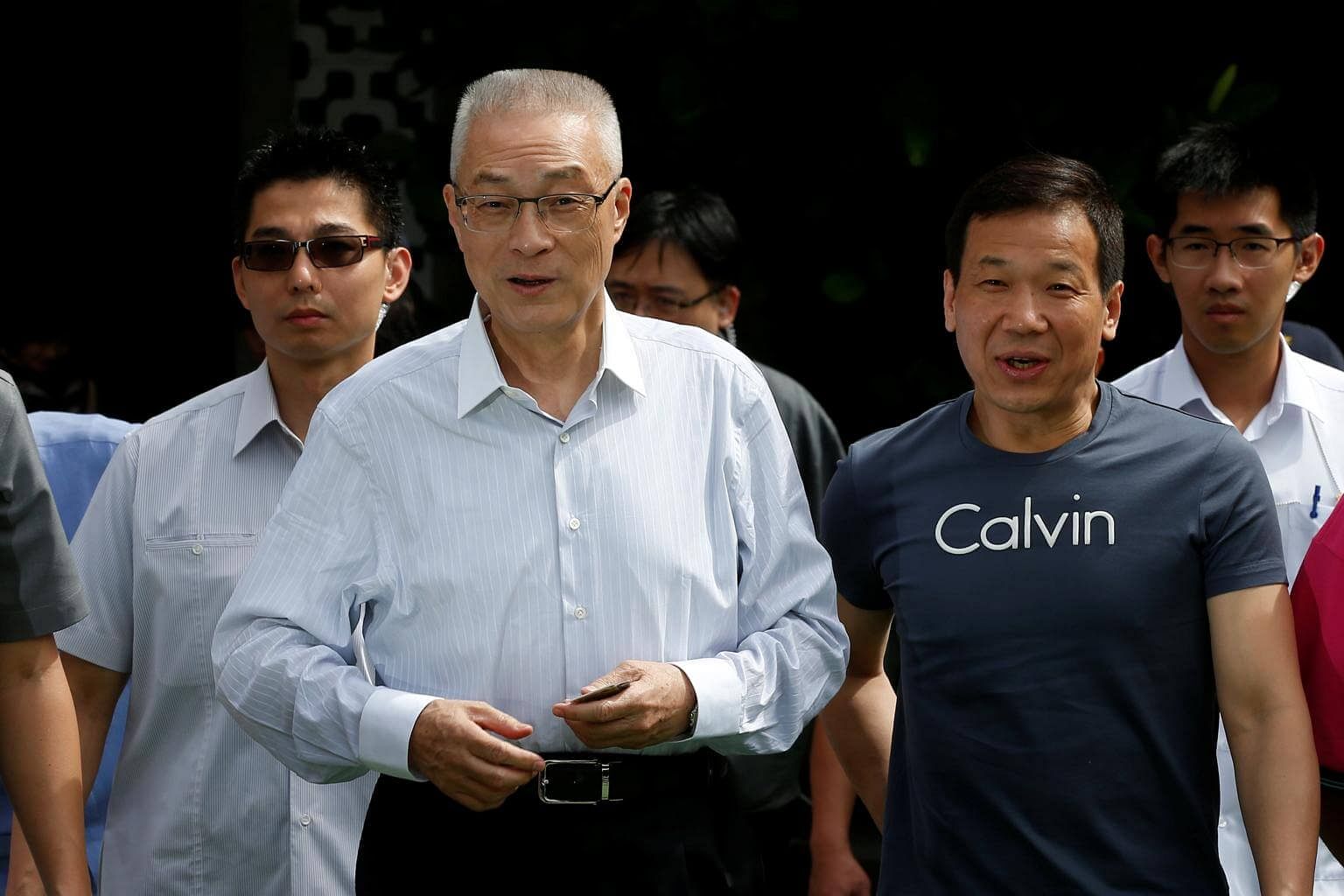Former Taiwan vice-president to lead main opposition Kuomintang
Sign up now: Get insights on Asia's fast-moving developments

Wu Den-yih (centre), chairperson candidate of Taiwan's opposition Nationalist Kuomintang Party (KMT), arrives at a polling station to elect a new party chairman in Taipei, Taiwan, on May 20, 2017.
PHOTO: REUTERS
Jermyn Chow
Follow topic:
TAIPEI - Taiwan's former vice-president Wu Den-yih will lead Taiwan's embattled Kuomintang after defeating five other challengers in the party's leadership race on Saturday.
With more than 60 per cent of votes counted, Mr Wu, 69, received more than 141,000 of an estimated 264,000 votes cast, garnering 52.24 per cent of the total votes in the most hotly contested leadership elections in the party's history. The figure was above the 50 per cent needed to avoid a run-off contest.
Mr Wu's closest rival, KMT's incumbent chair Hung Hsiu-chu, received 19.5 per cent.
The other four candidates in the six-way race were 69-year-old Hung's two former deputies Hau Lung-pin, 65; and Steve Chan, 68; former legislator Pan Wei-kang, 59; and businessman Han Kuo-yu, 59.
Mr Wu, whose political career spans more than 40 years, is expected to claim victory and speak to reporters later Saturday.
He was the former county chief of his native central Nantou and rose through the ranks to become the island's premier and most recently, its vice-president. He stepped down as vice-president last year.
The former mayor of southern Kaohsiung city will face the challenges of uniting and rebuilding a party plagued by bitter infighting and financial woes after its assets were frozen in a probe into its allegedly ill-gotten assets.
The KMT lost to the pro-independence Democratic Progressive Party in both the presidential and legislative elections last year.
Mr Wu's victory came on the same day President Tsai Ing-wen marks her first year in office.
Although many of Ms Tsai's unpopular reforms have drawn strong public criticism and her approval ratings have tumbled from 56 per cent to as low as 18 per cent, the KMT is also struggling.
The pro-Beijing party is also seen as being out of touch with the Taiwanese public, who are wary of closer ties with China. The latest survey released by the Cabinet-level Mainland Affairs Council (MAC) last week found that more than 70 per cent of Taiwanese prefer the status quo in cross-straits relations.
Analysts say another crucial test for the new KMT chief is whether he can rally the party together to pick up seats in next year's mayoral and councillor elections, or even dislodge Ms Tsai from power in the 2020 presidential elections.
Mr Hau was the first among the candidates to congratulate Mr Wu on his victory on Saturday.
In a Facebook post, Mr Hau said he hopes Mr Wu will unite the KMT and introduce reforms to improve the party's image.

